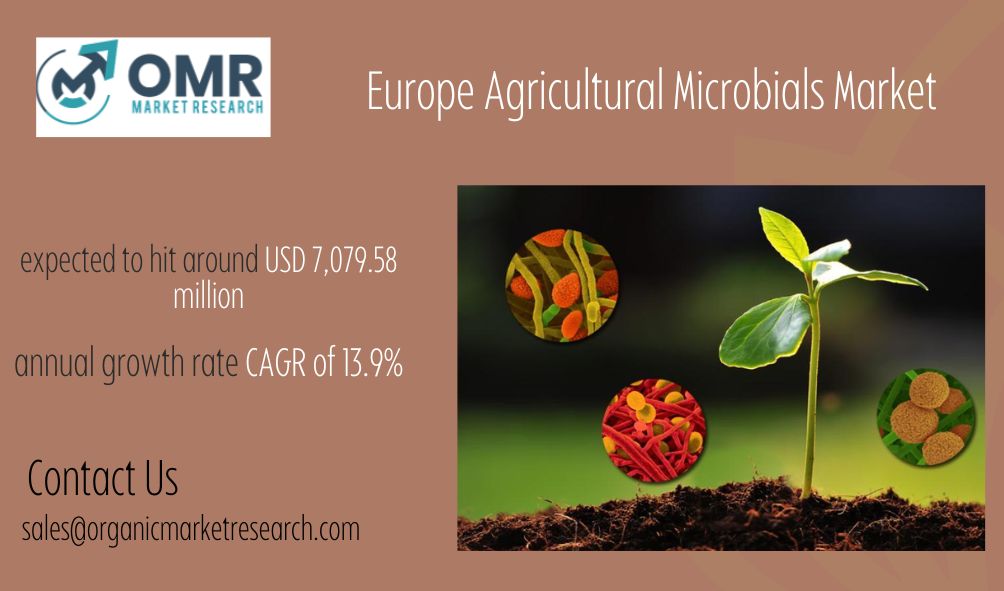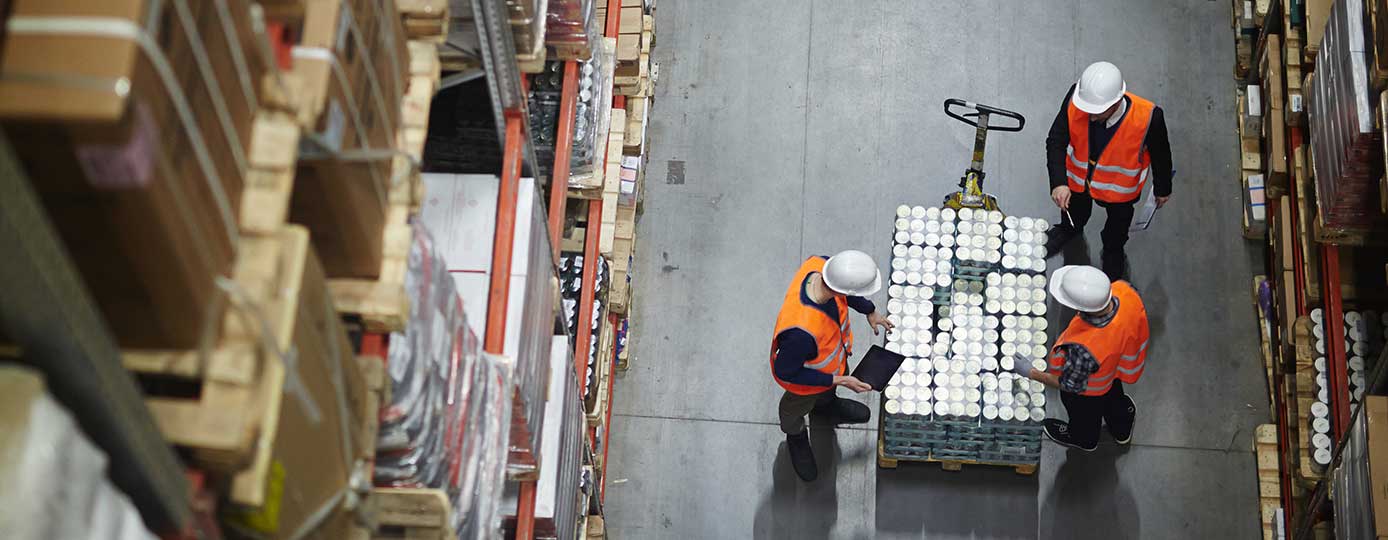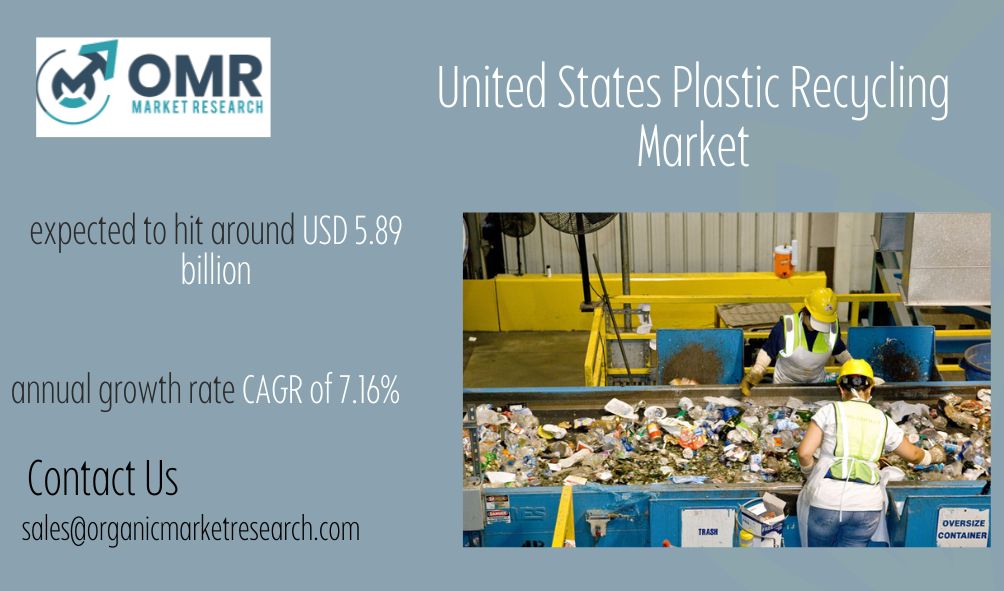Europe Agricultural Microbials market size was USD 2,194.29 million in 2023 and the market is projected to touch USD 7,079.58 million by 2032, at a CAGR of 13.9 % during the forecast period. Agricultural Microbials uses beneficial microorganisms to improve crop growth and soil health, while also minimizing the use of chemical inputs. Agricultural microbials, also referred to as biofertilizers and biopesticides, are naturally occurring microorganisms such as bacteria, fungi, and algae that are important for plant nutrition, disease prevention, and pest control. In recent years, there has been a growing interest in sustainable agriculture practices in Europe, leading to increased adoption of agricultural microbials. These products provide environmentally friendly alternatives to traditional chemical fertilizers and pesticides, helping to promote soil biodiversity and reduce environmental impact.

Moreover, progress in biotechnology and microbial studies has resulted in the creation of improved and specialized microbials that are designed for particular crops and environmental situations. With government policies in place that support sustainable agricultural methods, the European Agricultural Microbials industry is expected to experience substantial growth in the near future, presenting appealing prospects for established businesses as well as newcomers seeking to play a role in building a more resilient and eco-friendlier agricultural field.
Europe Agricultural Microbials report scope and segmentation.
Europe Agricultural Microbials dynamics
The growth of the European Agricultural Microbials market is being driven by various factors that are constantly changing. One important factor is the rising need for sustainable farming practices as people become more aware of issues like soil depletion, pollution, and food safety. Consumers are now choosing products that are grown using environmentally friendly methods, which is pushing farmers to use agricultural microbials instead of chemicals. Additionally, stringent regulations on pesticide use and a move towards more holistic pest control methods are also leading to an increase in the use of biopesticides, which is helping the market to expand.
Moreover, progress in biotechnology and microbial research is fuelling creativity in the creation of agricultural microbials, resulting in the launch of improved and specialized products. Businesses are putting resources into research and development to improve the effectiveness and scalability of microbial formulations, consequently broadening their market reach. Additionally, partnerships among research institutions, governmental bodies, and industry participants are facilitating the exchange of knowledge and technology transfer, speeding up the rate of innovation in the industry.
Europe Agricultural Microbials drivers
Growing Demand for Sustainable Agriculture
There is a growing understanding of how chemical agriculture negatively affects soil health and the environment, which is leading to a higher need for sustainable farming practices. Consumers are becoming increasingly aware of how their food choices impact the planet, resulting in a greater interest in products grown using environmentally friendly methods. This desire for sustainability is a key factor driving the European Agricultural Microbials market as farmers look for alternatives to conventional chemical products. Agricultural microbials offer a natural solution by enhancing soil health, supporting plant growth, and reducing the need for synthetic fertilizers and pesticides.
Stringent Regulations on Pesticide Usage
European regulatory agencies are implementing more rigorous regulations regarding the application of chemical pesticides to lower environmental harm and decrease health hazards for people. These guidelines, such as the European Union’s Sustainable Use of Pesticides Directive, are encouraging farmers to investigate different methods of pest control, like utilizing biopesticides made from agricultural microorganisms. The need for biopesticides is projected to grow as farmers look for solutions that meet regulations and effectively manage pests. This regulatory climate presents a promising market for agricultural microorganisms as they provide eco-friendly and compliant options compared to traditional pesticides.
- Restraints:
Limited Awareness and Adoption
Even with the benefits of agricultural microbials, there remains a lack of awareness among farmers regarding their efficacy and application. Many farmers are hesitant to adopt these products due to a lack of understanding or scepticism about their effectiveness compared to traditional chemical inputs. Partnerships among companies, government organizations, and agricultural outreach programs can help share information and give farmers the tools they need to successfully incorporate microbial solutions into their practices. Offering incentives such as subsidies, demonstration areas, and endorsements from other farmers can also promote the use of these solutions and create a culture of innovation and sustainability in the agriculture industry.
Cost Considerations
Farmers, especially smallholders with limited budgets, can find it difficult to afford the initial cost of agricultural microbials since they are often higher than traditional chemical inputs. While these microbials can provide long-term advantages like better soil fertility and lower input expenses, the high upfront price can discourage some farmers from using them.
- Opportunities:
Expansion of Organic Farming
The increasing popularity of organic food products in Europe is a great chance for the Agricultural Microbials market. Organic farmers use natural inputs and sustainable techniques to keep soil healthy and control pests, making agricultural microbials an important part of organic farming. As more consumers choose organic produce, the demand for agricultural microbials is on the rise as they play a crucial role in organic agriculture, leading to growth opportunities and product enhancements in the market.
- Segment Overview
By type, agricultural microbials can be segmented into fungi, viruses, bacteria, and others. Fungi-based microbials, such as mycorrhizal fungi, are known for their symbiotic relationship with plant roots, enhancing nutrient uptake and promoting soil structure. Viral microorganisms, though not as prevalent, can be used to control insect populations by infecting and decreasing their numbers. Bacterial microorganisms, such as Bacillus and Rhizobium, have various functions including nitrogen fixation, disease prevention, and promoting plant growth.
By function, the agricultural microbials is segmented into soil amendments and crop protection. Soil amendment microbials focus on improving soil health and fertility through processes like nitrogen fixation, phosphorus solubilization, and organic matter decomposition. Microorganisms like bacteria and fungi help improve the quality of soil by making nutrients more accessible, improving the soil’s structure, and helping it retain water. This leads to healthier and more productive soil overall. On the other hand, there are also microorganisms specifically intended to protect crops by fighting off pests and diseases. They do this by outcompeting harmful organisms, preying on them, parasitizing them, or using substances that are toxic to them. These crop protection microorganisms are a sustainable alternative to chemical pesticides, as they help control pests without harming the environment or beneficial organisms.
Europe Agricultural Microbials Overview by Region
The European Agricultural Microbials market differs greatly across regions due to various factors such as agricultural practices, climate, and regulations. Northern European countries, known for their intensive farming and sustainability efforts, are leading the way in using agricultural microbials to improve soil health and protect crops. In Western Europe, where organic farming is popular and consumers are more focused on eco-friendly products, there is a rising need for bio-based solutions, opening up opportunities for companies that produce microbial products. Countries in Southern Europe are dealing with issues like lack of water and soil erosion, so they are looking to find new ways to boost agricultural productivity without harming the environment. This has sparked a growing interest in microbial technologies. Meanwhile, Central and Eastern European nations are in the process of updating their agricultural practices to align with EU regulations. This has created new markets for agricultural microbials, with government programs encouraging sustainable farming methods.
Europe Agricultural Microbials market competitive landscape
Key multinational companies such as BASF SE, Bayer AG, and Syngenta AG dominate the market with their extensive product portfolios, regional reach, and substantial R&D investments. These companies leverage their expertise in biotechnology and agriscience to develop innovative microbial solutions tailored to the European market’s diverse needs. In addition to well-known companies, there is a growing community of new businesses and research organizations contributing to advancements in microbial technologies, bringing new products and manufacturing techniques to the market. Local companies are also making a mark by serving particular market niches or specific regions with their specialized knowledge and customer connections. As the demand for environmentally-friendly agricultural practices grows among consumers and government regulations support bio-based solutions, competition in the European Agricultural Microbials sector is becoming fiercer. This is prompting companies to stand out by focusing on the effectiveness of their products, their commitment to sustainability, and their ability to form strategic partnerships.
Europe Agricultural Microbials Recent Developments
- Dec 2023, OneOne Biosciences, a French startup dedicated to crafting a wide range of agricultural microbial solutions for farmers, joined forces with Ginkgo Bioworks. This partnership aims to utilize Ginkgo’s robust infrastructure in agricultural biologicals, along with their expertise in biotechnology and Strain Optimization Services, to expedite OneOne’s research and development efforts in agricultural microbial solutions.
- March 2023, Syngenta Crop Protection collaborated with Aphea.Bio to introduce innovative agricultural technology to European markets. This collaboration seeks to hasten the deployment of a novel biological seed treatment solution across various European countries. Aphea.Bio’s product is a biostimulant applied as a seed treatment on wheat, leveraging beneficial microorganisms to enhance nutrient use efficiency in crops, resulting in up to a five percent increase in yields even with reduced fertilizer application.
- Oct 2022, Ginkgo Bioworks established a strategic partnership with Bayer to advance biological solutions in critical areas such as nitrogen optimization, carbon sequestration, and next-generation crop protection. Leveraging open innovation sourcing, this collaboration is poised to accelerate Bayer’s Biologicals R&D pipeline by tapping into a global network of innovators. Additionally, Bayer remains committed to optimizing Joyn Bio’s nitrogen fixation technology to complement synthetic fertilizers in the future.
Scope of Europe Agricultural Microbials report
In case you don’t find what, you are looking for, please get in touch with our custom research team at
Latest Report
Contact Us
+91 9319642100
sales@organicmarketresearch.com
Noida One Tower Sec 62 Noida 201301
Website: https://organicmarketresearch.com












